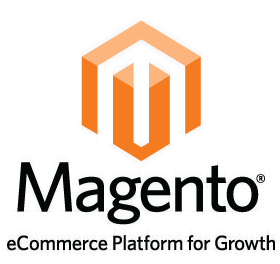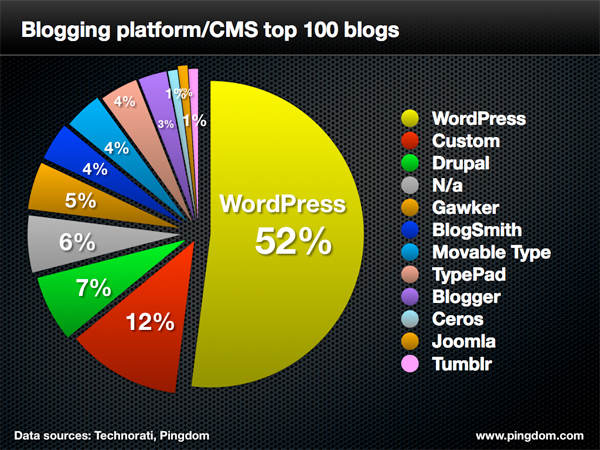Using WordPress As An Ecommerce Platform
WordPress was originally designed as a blogging platform and eventually grew into the comprehensive, featured content management system (CMS) we know and love today. It wasn’t intended to be used as a platform for retail, leaving many businesses and entrepreneurs asking the question – is WordPress good for ecommerce?
Choosing the right platform
First thing’s first. Decide on the right CMS for your site. From highly flexible to user-friendly, CMS options such as WordPress, Magento, and Shopify have unique aspects to consider before subscribing. Are you a small to medium-sized business (SMB) venturing into ecommerce for the first time? Then a WordPress ecommerce website might be right for you.
WordPress vs. Magento
For larger-scale online retailers, the open source Magento platform may be a better option than WordPress. Magento occupies the same preeminent position in ecommerce that WordPress has in the CMS world while maintaining a range of features that WordPress can’t hope to replicate in full.
However, for small-scale retail ventures that don’t require the level of professional features Magento offers, WordPress provides ample ecommerce solutions. There are a number of WordPress ecommerce plug-ins that range from very simple to quite complex in their configuration and features. In this guide, we’ll walk through how to set up your ecommerce site and choose the appropriate plug-ins.
WordPress vs. Shopify
WordPress is an open-source platform, meaning anyone can view, edit, and reproduce its code. On the other hand, Shopify is a proprietary software that makes for a much more templated user experience. If you maintain a small business with limited inventory, you may find the cookie-cutter approach of Shopify useful. But for most growing enterprises, WordPress delivers unparalleled customization features without the high monthly cost of Shopify.
Is WordPress right for my site?
Perhaps you already have WordPress knowledge, but you’ve yet to incorporate ecommerce. One reason to choose WordPress for your store instead of Magento is the steep learning curve: for those already familiar with the world of WordPress, understanding how XML, requireJS, and jQuery are needed to build and edit Magento sites are only the tip of the iceberg. If you’re ready to start a store, the path of least resistance begins with using the tools you feel most comfortable with, and WordPress has a wide variety of plug-in options that can build custom, robust ecommerce stores.
Keep in mind, other platforms like Magento and Shopify were specifically designed for retail management and may fit your business needs better. But no platform can rival WordPress when it comes to giving you endless options for turning your ideas into a functional site.
How to build an ecommerce website with WordPress plug-ins
Many different shopping solutions will enable you to add ecommerce to a WordPress site. While there are premium plug-ins available, we’re going to concentrate on freely available plug-ins that can be quickly downloaded, configured, and set up. The following free plug-ins don’t require much integration with third-party software outside of the need for a payment processing service.
WooCommerce plug-in
WooCommerce is one of the more popular plug-ins used to build an ecommerce website with WordPress. Developed by the team behind WooThemes, WooCommerce is celebrated for its ability to add ecommerce functionality to almost any WordPress theme.
WooCommerce sticks fairly close to the traditional posts and pages model of WordPress, so anyone familiar with publishing on WordPress will have no problem getting the hang of managing products. It also includes everything you need to start an online store, including various payment gateway integrations, shipping management, marketing and promotion tools, and retail-specific search engine optimization (SEO).
If you’re a first-time site builder looking for a low barrier to entry, WooCommerce is the perfect plug-in to make your WordPress ecommerce website a reality.
WP-ecommerce plug-in
Any list of WP ecommerce examples wouldn’t be complete without the plug-in WP-ecommerce itself. WP-ecommerce is the granddaddy of WordPress ecommerce.
WP-ecommerce has been downloaded over two million times, and its widespread use has laid the foundation for a great community that’s focused on helping newer store owners.
While WP-ecommerce has many of the same core features as WooCommerce, in total WooCommerce still offers more features than WP-ecommerce. Also, WP-ecommerce can be slightly less intuitive to use than WooCommerce.
All in all, both WooCommerce and WP-ecommerce offer great shopping solutions. But if you’re a step or two above novice and you like the appeal of the “original” plug-in, WP-ecommerce is the perfect option.
Easy Digital Downloads plug-in
If you’re selling digital products like software or music rather than tangible goods on your WordPress ecommerce website, check out Easy Digital Downloads. It has many of the features of the other two plug-ins we’ve mentioned, but is specifically tailored to digital goods, with license generation and management built in.
You’ll still have access to hundreds of extensions, themes, and support. For businesses focused on non-tangible goods, Easy Digital Downloads is a better option than WooCommerce or WP-ecommerce.
Payment gateway plug-ins
Payment gateway plug-ins enable your ecommerce store to accept online payments. Third-party service providers such as Square, PayPal, and Stripe offer some of the most popular payment gateway plug-ins.
When considering which payment gateway is right for your site, be sure to evaluate cost. Most payment gateways charge a transaction fee and may have additional fees as well.
Hosting for WordPress
While your CMS is what allows you to build your site, your hosting provider runs the servers that enable your website to be seen on the internet. When it comes to WordPress ecommerce sites, choosing the right hosting provider is an important step.
Speed, security, scalability, and support are the major aspects you’ll want to consider when looking for a hosting provider. How does your host ensure that your site will run fast, regardless of traffic spikes? Will they provide necessary security updates and offer 24/7 support?
Conclusion
Whether you’re new to WordPress ecommerce or looking to optimize your site, Hostdedi is the hosting provider that guarantees a smooth site experience for you and your customers. Managing WordPress, Magento, and WooCommerce hosting, Hostdedi ensures secure, scalable, and speedy connections to the platform of your choice. Choose a plan that’s right for you and start growing your business today!

 Transactional email are the emails that a WordPress site sends out to its users in response to some action they have taken. Newsletters and other promotional emails are considered to be bulk mail rather than transactional mail. Transactional email includes responses to users submitting their email addresses, commenting or getting a reply to a comment, registering on a site, and various other automatic responses. It’s one of the most important ways that a site communicates with its visitors.
Transactional email are the emails that a WordPress site sends out to its users in response to some action they have taken. Newsletters and other promotional emails are considered to be bulk mail rather than transactional mail. Transactional email includes responses to users submitting their email addresses, commenting or getting a reply to a comment, registering on a site, and various other automatic responses. It’s one of the most important ways that a site communicates with its visitors.


 When it comes to load-times for web pages,
When it comes to load-times for web pages, 

 If you’re pondering creating a blog or website, whether its because you’re an entrepreneur starting a business, you want to make money blogging, or you simply have a creative itch to scratch, you can’t have failed to come across WordPress. It’s the world’s most popular content management system, can be modified to create sites of almost any sort, and, best of all, WordPress is free.
If you’re pondering creating a blog or website, whether its because you’re an entrepreneur starting a business, you want to make money blogging, or you simply have a creative itch to scratch, you can’t have failed to come across WordPress. It’s the world’s most popular content management system, can be modified to create sites of almost any sort, and, best of all, WordPress is free.









